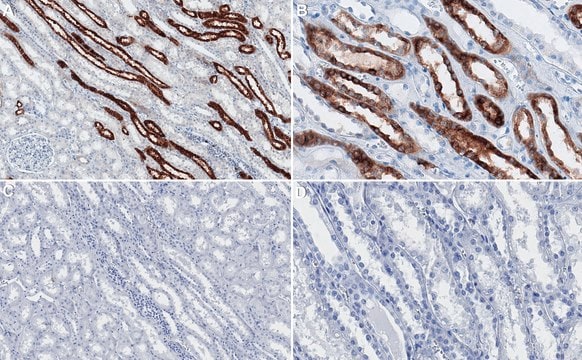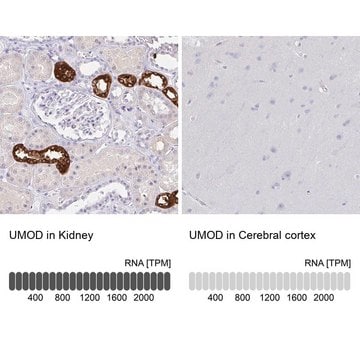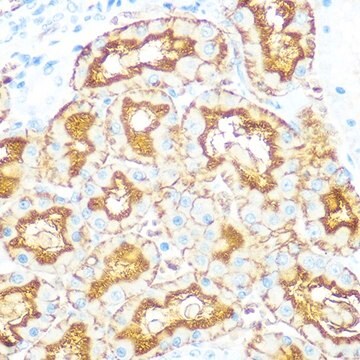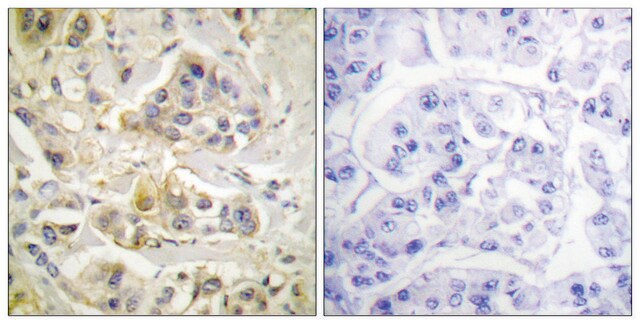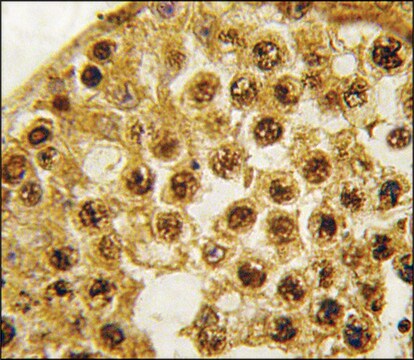SAB1400296
Anti-UMOD antibody produced in mouse
IgG fraction of antiserum, buffered aqueous solution
Sinónimos:
Anti-ADMCKD2, Anti-FJHN, Anti-HNFJ, Anti-MCKD2, Anti-THGP, Anti-uromodulin
About This Item
Productos recomendados
biological source
mouse
Quality Level
conjugate
unconjugated
antibody form
IgG fraction of antiserum
antibody product type
primary antibodies
clone
polyclonal
form
buffered aqueous solution
species reactivity
human
technique(s)
immunohistochemistry (formalin-fixed, paraffin-embedded sections): suitable
indirect immunofluorescence: suitable
western blot: 1 μg/mL
UniProt accession no.
shipped in
dry ice
storage temp.
−20°C
target post-translational modification
unmodified
Gene Information
human ... UMOD(7369)
Categorías relacionadas
General description
Immunogen
Sequence
MGQPSLTWMLMVVVASWFITTAATDTSEARWCSECHSNATCTEDEAVTTCTCQEGFTGDGLTCVDLDECAIPGAHNCSANSSCVNTPGSFSCVCPEGFRLSPGLGCTDVDECAEPGLSHCHALATCVNVVGSYLCVCPAGYRGDGWHCECSPGSCGPGLDCVPEGDALVCADPCQAHRTLDEYWRSTEYGEGYACDTDLRGWYRPHPSSDEGIVSRKACAHWSGHCCLWDASVQVKACAGGYYVYNLTAPPECHLAYCTDPSSVEGTCEECSIDEDCKSNNGRWHCQCKQDFNITDISLLEHRLECGANDMKVSLGKCQLKSLGFDKVFMYLSDSRCSGFNDRDNRDWVSVVTPARDGPCGTVLTRNETHATYSNTLYLADEIIIRDLNIKINFACSYPLDMKVSLKTALQPMVSALNIRVGGTGMFTVRMALFQTPSYTQPYQGSSVTLSTEAFLYVGTMLDGGDLSRFALLMTNCYATPSSNATDPLKYFIIQDRCPHTRDSTIQVVENGESSQGRFSVQMFRFAGNYDLVYLHCEVYLCDTMNEKCKPTCSGTRFRSGSVIDQSRVLNLGPITRKGVQATVSRAFSSLGLLKVWLPLLLSATLTLTFQ
Physical form
Disclaimer
¿No encuentra el producto adecuado?
Pruebe nuestro Herramienta de selección de productos.
Storage Class
10 - Combustible liquids
flash_point_f
Not applicable
flash_point_c
Not applicable
Elija entre una de las versiones más recientes:
Certificados de análisis (COA)
¿No ve la versión correcta?
Si necesita una versión concreta, puede buscar un certificado específico por el número de lote.
¿Ya tiene este producto?
Encuentre la documentación para los productos que ha comprado recientemente en la Biblioteca de documentos.
Nuestro equipo de científicos tiene experiencia en todas las áreas de investigación: Ciencias de la vida, Ciencia de los materiales, Síntesis química, Cromatografía, Analítica y muchas otras.
Póngase en contacto con el Servicio técnico
